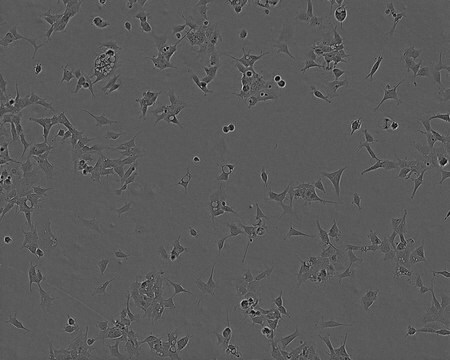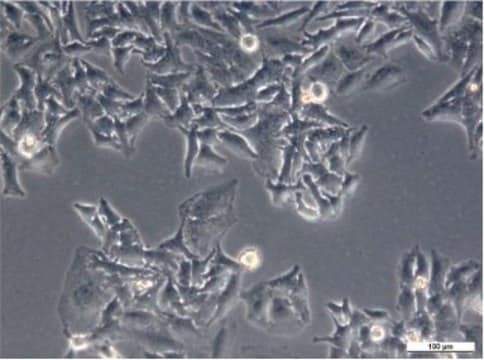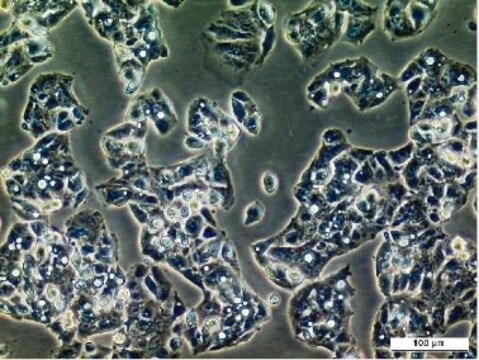MA104
85102918, African green monkey kidney, Epithelial
About This Item
Empfohlene Produkte
product name
MA104, from African green monkey kidney, 85102918, Convention on the International Trade in Endangered Species of Wild Fauna and Flora (CITES)
Biologische Quelle
African green monkey kidney
Wachstumsmodus
Adherent
Karyotyp
Not specified
Morphologie
Epithelial
Rezeptoren
Not specified
Suchen Sie nach ähnlichen Produkten? Aufrufen Leitfaden zum Produktvergleich
Ursprung der Zelllinie
Beschreibung der Zelllinie
Please note: The species of origin of the MA104 cell line has been shown to be different from that claimed by the originators.
Whitaker & Hayward (1985) found the cell line to originate from an African green monkey and not a Rhesus macaque as was originally claimed. Whitaker AM and Hayward CJ (1985). The characterization of three monkey kidney cell lines. Develop. Biol. Standard. Vol 60: 125-131. PMID: 4043530. Abstract: Three monkey kidney cell lines, Vero, GL-V3 and MA-104 were subjected to karyological analysis to determine their chromosomal stability and to confirm their species of origin. Although the lines were shown to be relatively stable throughout all of the passage levels that were tested, the species of origin of one of them was found to be different from that claimed by the originators. This finding was supported by data from isoenzyme studies.
Nährmedium
Subkultur-Routine
Sonstige Hinweise
Analysenzertifikate (COA)
Suchen Sie nach Analysenzertifikate (COA), indem Sie die Lot-/Chargennummer des Produkts eingeben. Lot- und Chargennummern sind auf dem Produktetikett hinter den Wörtern ‘Lot’ oder ‘Batch’ (Lot oder Charge) zu finden.
Besitzen Sie dieses Produkt bereits?
In der Dokumentenbibliothek finden Sie die Dokumentation zu den Produkten, die Sie kürzlich erworben haben.
Unser Team von Wissenschaftlern verfügt über Erfahrung in allen Forschungsbereichen einschließlich Life Science, Materialwissenschaften, chemischer Synthese, Chromatographie, Analytik und vielen mehr..
Setzen Sie sich mit dem technischen Dienst in Verbindung.





